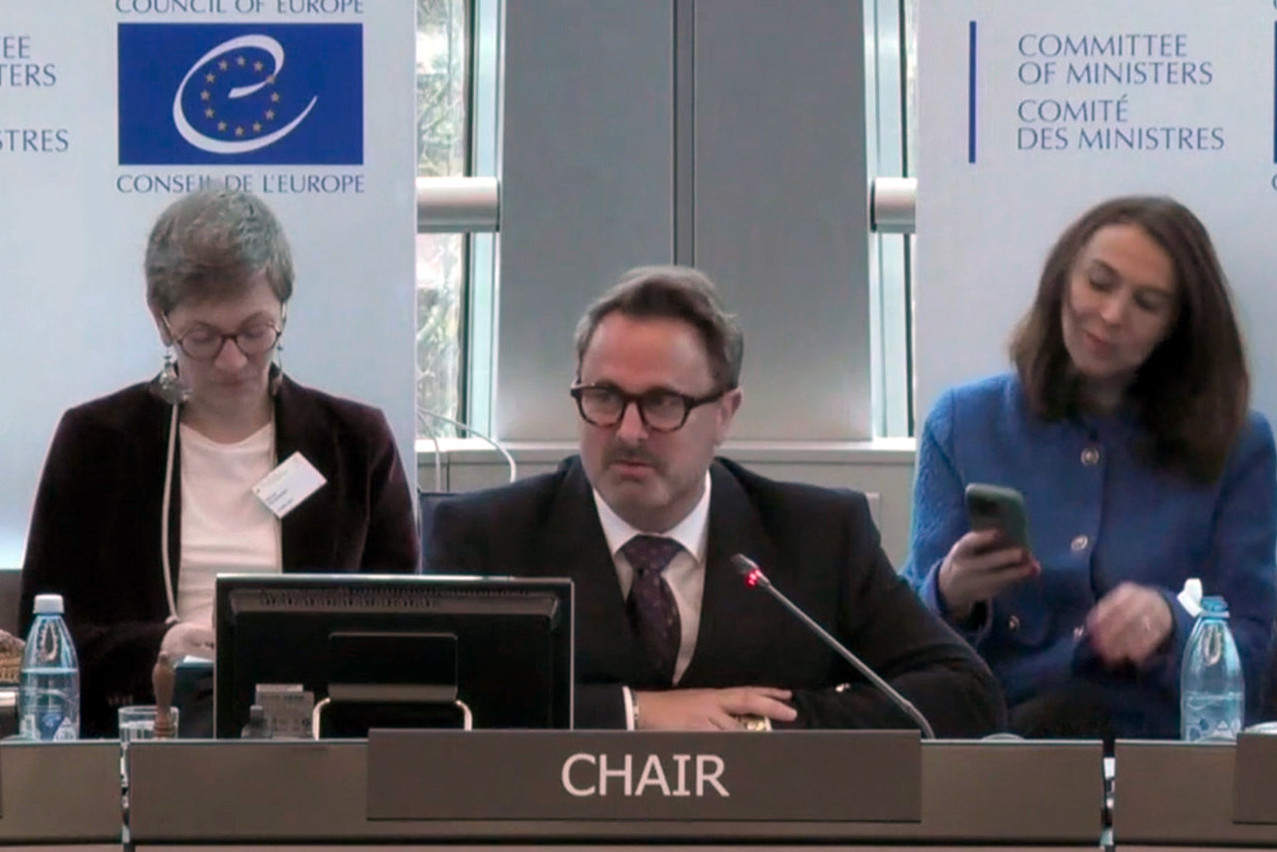After Lithuania, it is Luxembourg's turn to take over the chairmanship of the Council of Europe's Committee of Ministers, for six months starting on 13 November 2024 and running until 14 May 2025. "Luxembourg's presidency comes at a crucial time for the continent of Europe", the secretary general of the Council of Europe, Alain Berset, said during a visit to the Chamber of Deputies in October.
This year marks the institution's 75th anniversary. Founded in 1949, the Council of Europe aims to promote democracy, human rights and the rule of law on the Old Continent. Based in Strasbourg, it has 46 member states, including the 27 EU member states and neighbouring countries such as Turkey, Norway and the UK. Separate from the EU, the Council of Europe's best-known body is the European Court of Human Rights, which monitors compliance with the European Convention on Human Rights and enables citizens to assert their rights when they believe their country has violated them. The institution is made up of three bodies: the Committee of Ministers, made up of the ministers for foreign affairs, including (DP) for Luxembourg; the Parliamentary Assembly, which brings together national parliamentarians; and the Congress of Local and Regional Authorities.
Every six months, a different country takes over the presidency, in alphabetical order. More concretely, it is the foreign minister of the country in question, who takes on the role of chairman of the Committee of Ministers. Luxembourg joined the Council of Europe in May 1949 and contributed €1.67m to its budget in 2024. It has already held the presidency four times, between 1956-1957, 1973-1974, 1983-1984 and in 2002-2003.
In practical terms, Luxembourg will be able to define its own priorities during its term of office and organise and chair meetings of the various Council of Europe bodies. The presidency also implies a representative role, which means that Luxembourg will be able to use this position to promote European values on the international stage. Depending on the priorities it has defined, it will be able to initiate specific projects. Indirectly, this presidency is also an opportunity for the country to strengthen its diplomatic image.
Peace, living together and culture: Luxembourg's priorities
"It's an honour for me to be here. I've wanted to be part of the Committee of Ministers of the Council of Europe for 14 years," said Bettel, who is both deputy prime minister and foreign affairs minister, with a touch of humour as he officially took office. His priorities include continued support for Ukraine and the promotion of peace. He referred to the delicate situations, which he described as "powder kegs", in Ukraine, Kosovo and the Middle East... "Peace is never something that can be taken for granted, and we are seeing this clearly today with Schengen..
One of the other priorities of the Luxembourg presidency is to make the Council of Europe more visible. "In the coming months, it will be important to show ourselves to be a platform for dialogue, where together we can take advantage to find solutions", he insisted. The ECHR is our backbone, yet we are witnessing a backward slide in democracy", he added. Other priorities include defending press freedom and promoting culture, "the lifeblood of our societies".
While the Council of Europe has not waited for the Luxembourg presidency to make progress on its priority issues, notably in the fight against impunity, the Luxembourg presidency will be decisive "in launching the establishment of a compensation and claims mechanism". It will also have the opportunity to promote ratification by the member states of the Council of Europe's framework convention on AI.
Read the original French-language version of this news report
